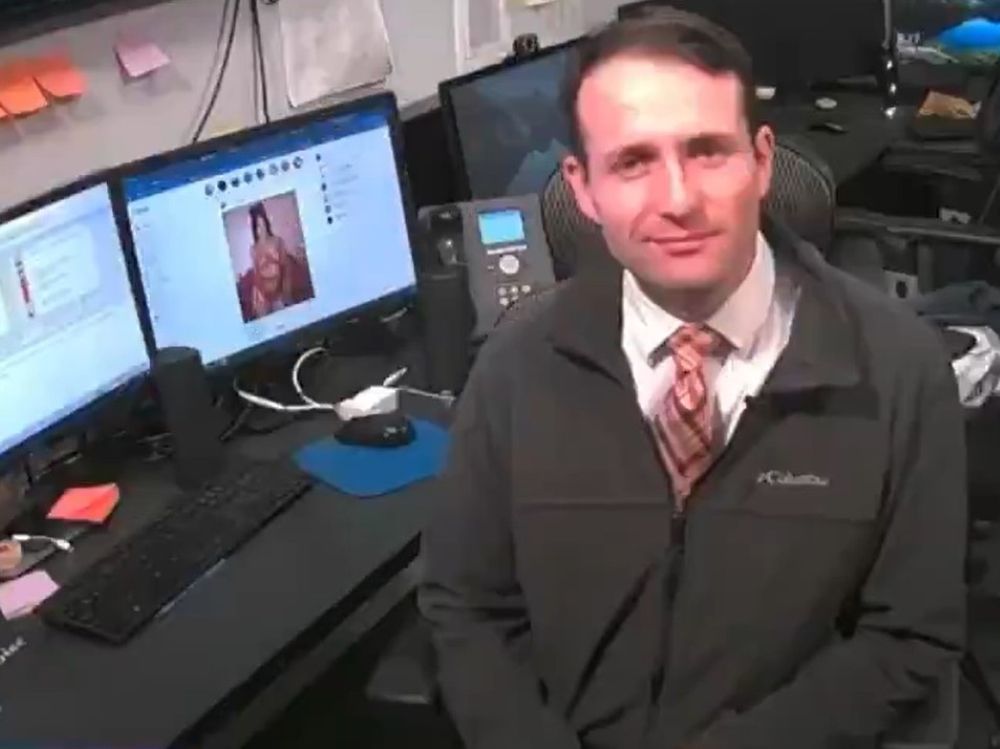Ex-treasury board executive director prescribes setting a cap on annual budget increases for the Ministry of Health and reviewing discretionary spending, such as the tax credits for the film and tv sector
Published Jan 07, 2025 • Last updated 0 minutes ago • 4 minute read

A former executive director of B.C.’s treasury board staff says the NDP needs to reverse the trend of increased spending and large deficits if the province’s economy is to remain healthy.
Article content
Article content
Gord Enemark spent 12 years as the executive director of treasury board staff, serving three premiers between 2008 and 2022 before moving to the Ministry of Housing to help write Premier David Eby’s housing strategy.
Advertisement 2
THIS CONTENT IS RESERVED FOR SUBSCRIBERS ONLY
Subscribe now to read the latest news in your city and across Canada.
- Unlimited online access to articles from across Canada with one account.
- Get exclusive access to the Vancouver Sun ePaper, an electronic replica of the print edition that you can share, download and comment on.
- Enjoy insights and behind-the-scenes analysis from our award-winning journalists.
- Support local journalists and the next generation of journalists.
- Daily puzzles including the New York Times Crossword.
SUBSCRIBE TO UNLOCK MORE ARTICLES
Subscribe now to read the latest news in your city and across Canada.
- Unlimited online access to articles from across Canada with one account.
- Get exclusive access to the Vancouver Sun ePaper, an electronic replica of the print edition that you can share, download and comment on.
- Enjoy insights and behind-the-scenes analysis from our award-winning journalists.
- Support local journalists and the next generation of journalists.
- Daily puzzles including the New York Times Crossword.
REGISTER / SIGN IN TO UNLOCK MORE ARTICLES
Create an account or sign in to continue with your reading experience.
- Access articles from across Canada with one account.
- Share your thoughts and join the conversation in the comments.
- Enjoy additional articles per month.
- Get email updates from your favourite authors.
THIS ARTICLE IS FREE TO READ REGISTER TO UNLOCK.
Create an account or sign in to continue with your reading experience.
- Access articles from across Canada with one account
- Share your thoughts and join the conversation in the comments
- Enjoy additional articles per month
- Get email updates from your favourite authors
Sign In or Create an Account
or
Article content
He left the provincial government in June.
Enemark says the province is not yet in a crisis, despite running a $9.4 billion deficit this year. But, he said, if the trend continues, it could lead to a significant increase in the amount B.C. spends each year on servicing its debt.
“We’re only paying about four per cent of our overall budgeted revenues in interest, which, to me, is the key metric. Back in the 90s, the federal government was paying up to 35 per cent of its budget on interest and it was a crisis,” he said.
“What I’m saying is, it’s not a crisis, but that metric is starting to head in the wrong direction, according to the Ministry of Finance’s own projections, and, unless you get a handle on it sooner rather than later, you’re looking at paying eight per cent, 10 per cent, 12 per cent of your budget in interest.”
Enemark’s prescription includes setting a cap on annual budget increases for the Ministry of Health, which already takes up 40 per cent of the provincial budget and grew 15 per cent last fiscal year, and reviewing discretionary spending, such as the tax credits for the film and tv sector.
By signing up you consent to receive the above newsletter from Postmedia Network Inc.
Article content
Advertisement 3
Article content
He believes that measures announced by the province to stem the tide of spending, such as a partial hiring freeze within the public service, will have little effect on the deficit. The bigger problem, believes Enemark, is the wage increases given to public sector unions in the last bargaining period.
The average public sector employee is getting 13.75 per cent more over the three-year length of the contracts signed in 2022.
“You really have to get a handle on a couple of things. First of all, constraining the rate of growth of wages. The current government has been very generous with the unions on wage increases. You’ve got to constrain the rate of growth of the health budget and the finance minister and the premier have to be working in lockstep.”
The Ministry of Finance did not provide a response in time for deadline about what the province plans to do to reduce the deficit, although Premier David Eby has said he will focus on improving B.C.’s economic position through economic growth and a review of spending by B.C.’s health authorities.
He also promised not to cut any key services.
Advertisement 4
Article content
UBC economist Tom Davidoff said he’s not worried about the economy yet, as B.C. still has one of the lowest debt-to-GDP ratios in the country, but does believe the government needs to take action if it is going to avoid problems in the future.
Davidoff said the government faced a credit downgrade earlier this year which is worrying. At the same time, he said much of the new provincial spending has gone toward needed infrastructure such as hospitals and schools as well as towards services for low-income British Columbians.
“I think most Canadian provinces and certainly the federal government have seen the need to do deficit spending, and the surge in population in British Columbia necessitated a lot of spending, and I think there was probably some deferred spending,” he said.
“It’s not the end of the world, but if you trend upwards over a long time enough, it can be worrisome.”
Davidoff recommended increases to property taxes as a way to help alleviate budget constraints instead of focusing on increasing revenue from income and sales taxes.
For some, the concern is that the deficit is becoming too large to bring down quickly and will become irreversible without major, and painful, reforms.
Advertisement 5
Article content
Mike de Jong, who was the B.C. Liberal finance minister from 2012 to 2017, says he worries the deficit has now become structural and the sluggish economic growth expected over the coming years will not be enough to make up for it.
He said there was good reason to go into deficit during the pandemic as a way to help people cope with shutdowns, but the NDP have since used that as an excuse to spend even more.
“With a structural deficit, you see the government resorting to what governments frequently do in these situations. They go back to the taxpayers,” said de Jong.
“What happens is the options slowly begin to disappear … even the NDP government now, you’re beginning to hear them talk about the need to cut services, increase taxes. Those are the two things you’re going to hear.”
Conservative finance critic Peter Milobar says he hopes to the province will take a hard look at how it finances public-sector development this year and recognize that the solution in areas such as the health-care system is not simply to provide more money.
He worries continued deficit spending could lead to investors deciding B.C. is too much of a risk.
“All signs point to a massive amount of red ink in this next budget, if they don’t show some semblance of fiscal responsibility,” said Milobar.
Article content
.png)
 3 days ago
7
3 days ago
7


































 Bengali (BD) ·
Bengali (BD) ·  English (US) ·
English (US) ·